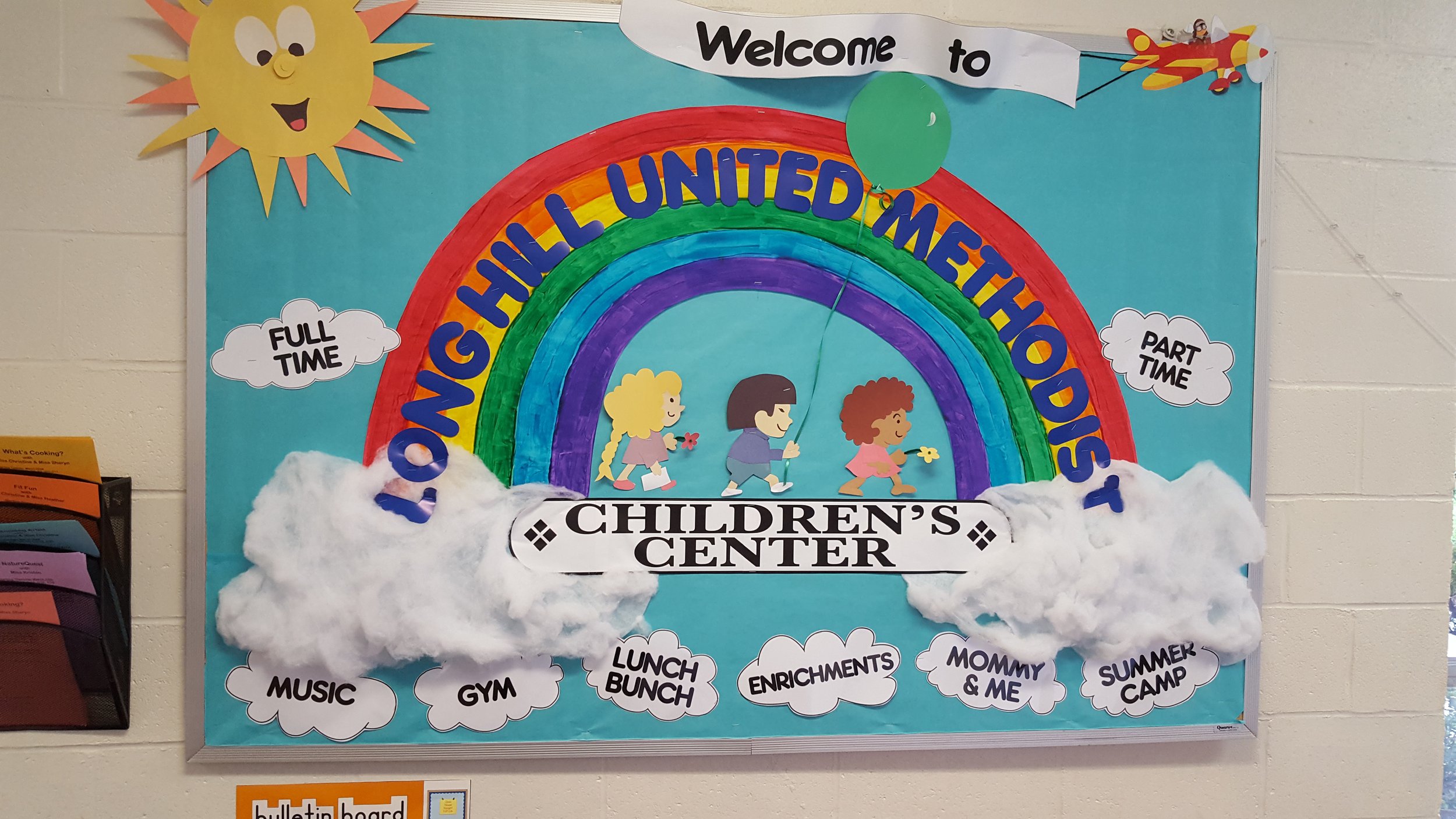Our Philosophy
Long Hill Children’s Center offers children a preschool experience in which they will grow emotionally, socially, developmentally and cognitively. Our classroom environment encourages individuality and inquisitiveness that fosters and facilitates children to become lifelong learners through exploration, discovery, imagination and creativity.
Our Program offers your child the opportunity to interact with other children in an environment that is scaled to and planned for your child. The children are stimulated, not pressured, to ask questions, to think for themselves, and to try out new ideas. The Program is a flexible child-centered one designed to satisfy the needs of the individual child within the group. Each session follows a routine or schedule that becomes familiar to the children.
Each day the children have an opportunity to participate in a wide variety of planned and spontaneous activities. Activities such as open ended art experiences, science and cooking projects, blocks, dramatic play, preschool readiness games, songs, rhymes, finger plays and creative play are a part of each day. Learning Experience Charts, graphs, and scientific observations (data collection, organization and representation) are all presented to the children to show their own responses.
In partnership with Families, Caregivers, and the Community, we provide a developmentally appropriate, nurturing and secure setting promoting each child’s unique ability to reach his or her social, intellectual and academic potential.
Our Curriculum
Through the guidance of highly qualified teachers with degrees and certifications in Early Childhood Education, the children have the opportunity to creatively explore their environment and have many choices. Many of our activities will be classified as purposeful “play”. Though we, as adults, look upon it as “play”, the child’s “play” is his “work”. Play is an essential part of learning for preschool children. The skills children learn through purposeful, productive and high-level play—are foundational skills for all cognitive development.
Skills in verbalization
Vocabulary
Language comprehension
Problem solving
Observation
Empathy
Imagination
Role play
Cooperation
Independence
The children in our program are always learning and developing and experiencing as they work with the materials provided. Therefore, the “play” is “guided play” because the teachers have learning goals in mind as they plan the daily activities. The curriculum follows the Connecticut Early Learning and Development Standards developed by the State Department and Connecticut Office of Early Childhood Education with Performance Standards and Benchmarks as criteria in the lesson planning for each child’s achievement.
Each classroom provides a literacy rich environment where the physical space is thoughtfully planned and includes print that is meaningful to the children which helps them communicate messages and ideas, learn new information and concepts, and organize and express their thoughts. A literacy rich environment conveys the message that reading, writing, listening and speaking are valuable and enjoyable. The teachers act intentionally to help the children use written and spoken language throughout the day. Some of the daily planned literacy experiences are:
• Journaling
• Letter and number recognition
• Sight words
• Calendar
• Rhyming
• Sequencing
• Beginning sounds and blends
• Concepts of opposite and similar
The following core components of language and literacy are presented and taught to the children:
Literacy as a source of enjoyment
Vocabulary and oral language
Phonological awareness
Knowledge of print, letters and words
Comprehension
Understanding of books and other texts
As children draw, paint and work with play dough, they develop the small muscles (arm and hand) which are used in handwriting. Through these and other activities the children also develop eye-hand coordination and creative expression.
While building in the block area, children need to consider size, proportion and number—concepts that carry over to mathematics. They learn fractions as they discover that one long block is equal to two short blocks and sequencing and comparing as they arrange blocks in order of size. Children gain cognitive skills in language and literacy as words are used to plan and build with friends, express their ideas, and discover and understand spatial relationships. While exploring with sand, water and rice children develop early science concepts of spatial sense and measurement. As children participate in dramatic or role play they are developing social skills and are achieving a sense of community as they “become” doctors, vets, nurses, construction workers, firemen, moms, dads, teachers, scientists, chefs, farmers and wherever else their imagination takes them.
All of these preschool activities and early childhood experiences lay the foundation for future learning filled with enthusiasm and eagerness. We encourage you, as parents and caregivers, to question and comment on your child’s activities and to attempt at home to reinforce in as many ways as possible the interests that your child develops.

